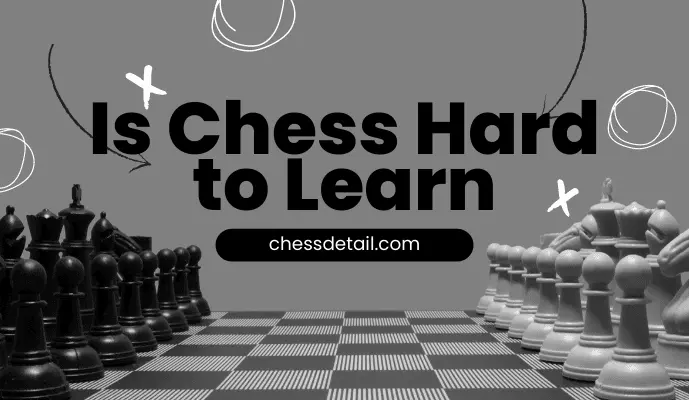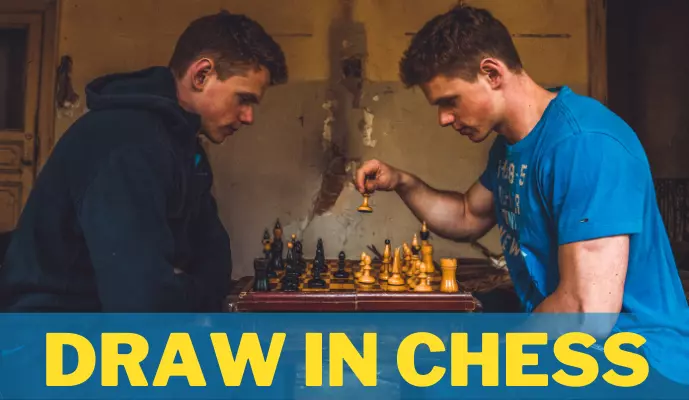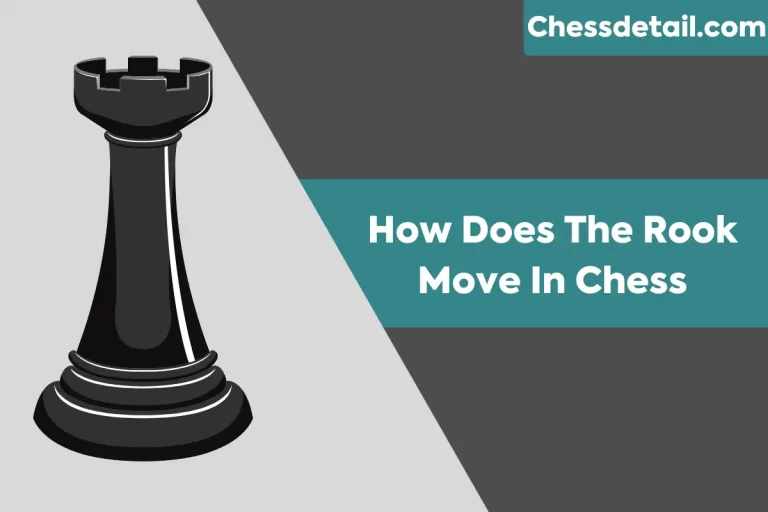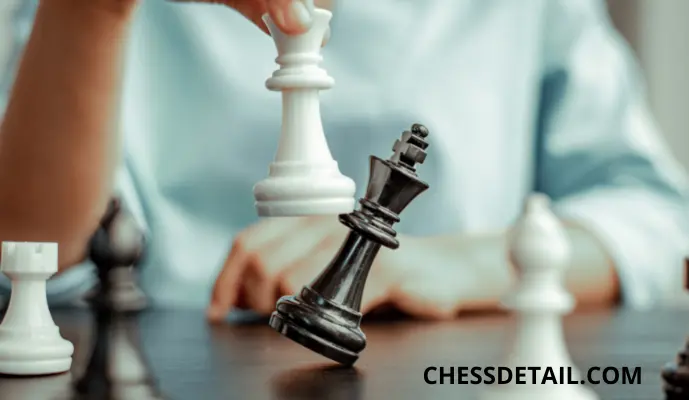Is Chess Hard to Learn for Beginners? Explained!!
Is Chess Hard to Learn? The Simple Answer is NO. It’s just a matter of learning the basics, moving the pieces, learning how to checkmate, and a few tricks here and there; all you need is dedication and the urge to keep learning. To this end, you might find reaching the mastery level a bit challenging as it requires a lot of dedication, attention, and investment.
There are many people who become interested by Chess and decide that they should try it. Eventually, they develop the misconception that Chess is too complicated, and they become demotivated. I, a lover of Chess, felt very sorry about this and decided to solve the mystery today. It’s good that you landed at the right place if you are in the same boat. Let’s talk about what’s real!

Is Chess Hard to Learn
Chess is not difficult to learn, but it takes time to become a master of it. You will need years and years of practice to become a MASTER at Chess since it takes quite a bit of practice to learn it properly at first. Continue reading to learn more about learning Chess. You will learn everything you need to know about how to play chess right from scratch with me. Furthermore, I will also provide you with some tips covering all aspects of the fascinating world of Chess so that you will feel confident in stepping into it. With that said, let’s dive right in!
Important Things You Need to know Know to Play Chess
Almost all of my friends and colleagues who know I play Chess think I’m some kind of genius born to play it. Chess can usually be learned within an hour or so, and by the time people have played a few games, they will be able to correctly play Chess. People often make up their own rules for board games, but Chess is an internationally standardized game that requires a particular style of play.
To play Chess, you should know these things:
- How to move the chess pieces.
- How to Checkmate.
- The rules and Regulations of Chess
How to move the chess pieces:
Chess has six different pieces: the king, queen, bishop, knight, rook, and Pawn. Some of them can be tricky for a newbie, as each has a different movement path.
How to Checkmate:
Those that teach Chess to others tend to forget or undermine this concept, and I have seen countless endless games as a result. A beginner’s most important lesson is to learn how to checkmate their opponent since that is the game’s purpose!
The Rules and Regulation of Chess:
There are a few simple things like setting up the board, deciding who moves first, and how to take your opponent’s pieces. As well as so-called obvious rules, there are others like pawn promotion, en passant, and castling.
Myths About Learning Chess
Do you What is the best part about Chess?
“Become Serious about Chess, and it becomes infinitely Complicated as you dive deeper into it.”
Heheh Interesting Right? There are Many people who quit playing chess early do so because of myths and misconceptions. Some of these myths include:
Chess is Difficult to Learn
Despite its complexity, Chess is not the most complicated of games to learn. The Pawn has the most complicated moves out of the six pieces because it has the least value. To defend the king, you must learn the castling rules as well. In games where no one wins, there are certain rules. There is some truth in this myth — playing Chess well is very difficult. Only one in 100 people reach mastery.
Must Be Smart to Play
Chess ability and general intelligence are related in some way. A certain level of intelligence is necessary. Nobody has tried to teach dolphins and chimpanzees the basics; cats and dogs cannot be taught. There is no question that Chess requires the efficient use of numerous advanced compartments of the brain. The game of Chess is enjoyed by people from every walk of life, with many becoming masters. Nevertheless, there are people who are very intelligent but remain beginners.
Only Computer Solve Chess Puzzles
Chess moves can be made in millions of different ways. Chess is a very challenging game to solve, even for computers. Nevertheless, this is a positive development since it makes the game more accessible to everyone. Whether you’re a newbie or a pro, once you learn the moves and know the rules, you can challenge the best. The game of Chess is not played by those who know their moves ahead of time. Your opponent determines your actions.
Waste of Time
An opinion is more accurate than a myth. It’s a game, after all. It also involves logic and art, unlike most games. The same can be said for most other games. In our contemporary world, many view things unrelated to economic development as a waste of time. Certainly, Chess is not of interest to those people. That is fine. Everyone should pursue their own interests in their life.
Chess is Only for Nerds
Anyone can play chess, so this is no myth. There is something there for everyone, not just nerds, geeks, eggheads, or boffins. It is better for people to call others unpleasant names rather than saying ‘chess is only for nerds,’ but this is certainly false. It doesn’t matter whether it was true or not. People with intelligence, awkwardness, and quirkiness have contributed to the advancement of humanity more than the rest. Let them play Chess if they want.
Nothing to Gain from Chess
That’s not true! Chess has many advantages. Furthermore, Chess can earn you money, along with improving your mental sharpness and decision-making ability. There are many professional chess players who travel the world to play Grandmaster events and win cash prizes. Learning the game sooner rather than later should motivate you.
Chess is an Old Game
It is reliably estimated that Chess originated around 600 A.D. The game is, therefore, more than 1400 years old. Chess would become ‘thousands of years old’ once it survives another 100 years. It is safe to conclude that Chess as we know it, in which Queens and Bishops move like modern pieces, dates to around the time Christopher Columbus discovered America at the end of the 15th century. Gamers worldwide are glued to it, and there’s something to love about it. The next generation will certainly enjoy it.
Tips to Learn Chess Easily
Learn About the Piece
Understanding how each of the 16 pieces moves is important before you start playing Chess. During chess games, you have eight pawns, a king, a queen, two bishops, two knights, and two rooks, and each of these pieces has its own movement rules. Children pick up the basics of chess quickly; adult beginners take a little longer to learn, but if you take the time to understand each move, you’ll master the game and develop your strategy much quicker.
Learn How to Castle
When you castle, you can only move the King and one rook together at once, and this is the only time you can move two pieces at once. The move is not for professional players. It is a basic maneuver that all chess players should learn early. Castles may be built on either the kingside or the queenside according to specific rules. It is not possible to convey in a couple of hundred words how to perform this special maneuver and when the optimum opportunity to do it arises.
Don’t Rush To Check
It’s not always advantageous for you to check your opponent’s king. Checking the king makes no sense, especially if you will lose it or if you will be disadvantaged. Competitive chess players won’t just make one move to gain a check but will position their pieces in a pattern, all moving in the same direction, all supporting each other. You will not gain any tempo or be any better off if you check your opponent’s king and immediately lose that piece. As you check, be sure to consider how you will defend that piece or area.
Read Books
Despite the fact that reading books about Chess are a bit old-school these days, I consider them an even more valuable tool for learning the game. A video can be scrolled back and forth without having to keep finding the right place. The depth of explanations can even be deeper with chess books since you can simply mark out any bits you’d like to revisit. It is possible for you to read many books written by some of the world’s greatest chess grandmasters. It is also possible to purchase books that specifically cover one opening theory and all of its possibilities and books that cover specific portions of playing.
Watch Videos
Watching Chess videos on YouTube is not only entertaining but also educational. In addition to watching lessons, you can learn more specifics about different strategies and moves. Additionally, I enjoy watching very good players describe what they think the opponent might do as well as what they think they will do. As well as pointing out what you should not do, they may make the most effective moves possible. I enjoy watching the YouTube channel GothamChess for Chess. Over 1.5 million subscribers have been added to the channel since Levy, who runs it, posted videos every day for a year. To learn Chess, you can use the variety of videos he has on his Youtube Channel.
Limit your Blitz Play
The game of Blitz Chess can be fun, but it can also be tough for a beginner to learn the fundamentals. You will make more mistakes as time limits further pressure your thinking time, and your concern for the ticking clock will make you more concerned about losing time than thinking about making the best move. Play Chess every day with an extended time limit when learning. The process might be slow at first, but you will become better and make fewer mistakes, which will mean you are more likely to win games and won’t feel frustrated with how much you are not improving.
Register yourself at Chess.com
Online Chess is an excellent way to improve your chess skills, and chess sites like Chess.com offer you many ways to speed up your learning. You can practice what you’ve learned with daily puzzles and study chess skills categorized by specific areas to study and practice. With a free account, you can access a limited amount of information, but with a premium account, you can access much more information much faster and learn Chess much better. Moreover, thanks to the mobile app, you can learn from a wide range of chess resources anywhere you are. If you have a mobile device nearby, you can check your email on the bus, in bed, or on the way to work.
Difficult to Master Chess: Top Reasons
Mastering chess is very different from learning it. The mastery of any skill requires a lot of effort and perseverance, no matter what it is. The following are a few of the reasons that Chess is hard to master.
- To reach the master’s level in Chess takes a lot of time and dedication.
- Learning different moves and lots of variations makes Chess a little more complex. It’s hard to believe that there are more possibilities for chess games than there are atoms in the whole world!
- Chess knowledge is half the battle. Playing some matches and gaining experience is the best way to apply. However, this requires a lot of dedication and hard work.
What Is The Best Age to Learn Chess?
When you are young, it is best to start learning Chess. The best age for learning Chess is when you are about 6 to 8 years old. A child spends a lot of time concentrating on what he or she is doing when they are young. Because of this, it’s best to begin learning Chess when the child is young, so they have plenty of time to play and learn. Since kids’ interests change as they get older, waiting until they are teens to teach them Chess is not a good idea.
FAQs
Final Verdict
Chess is one of the most popular and fascinating sports. There is no difficulty in learning it. The rules are easy to understand, and the basics are straightforward. Furthermore, you’ll need to work a bit harder to take your game to the next level. You may want to start by studying the chess materials online or learning from the professionals around you. As long as you are willing to work hard, you can achieve success.
After reading out an article about “Is Chess Hard to Learn,” I hope all confusion got clear. But still, if you have any questions, do let me know in the comment section. Thank You!



![How Does The Pawn Move In Chess [Everything Explained]](https://chessdetail.com/wp-content/uploads/2023/06/How-does-the-pawn-move-in-chess-768x512.webp)


